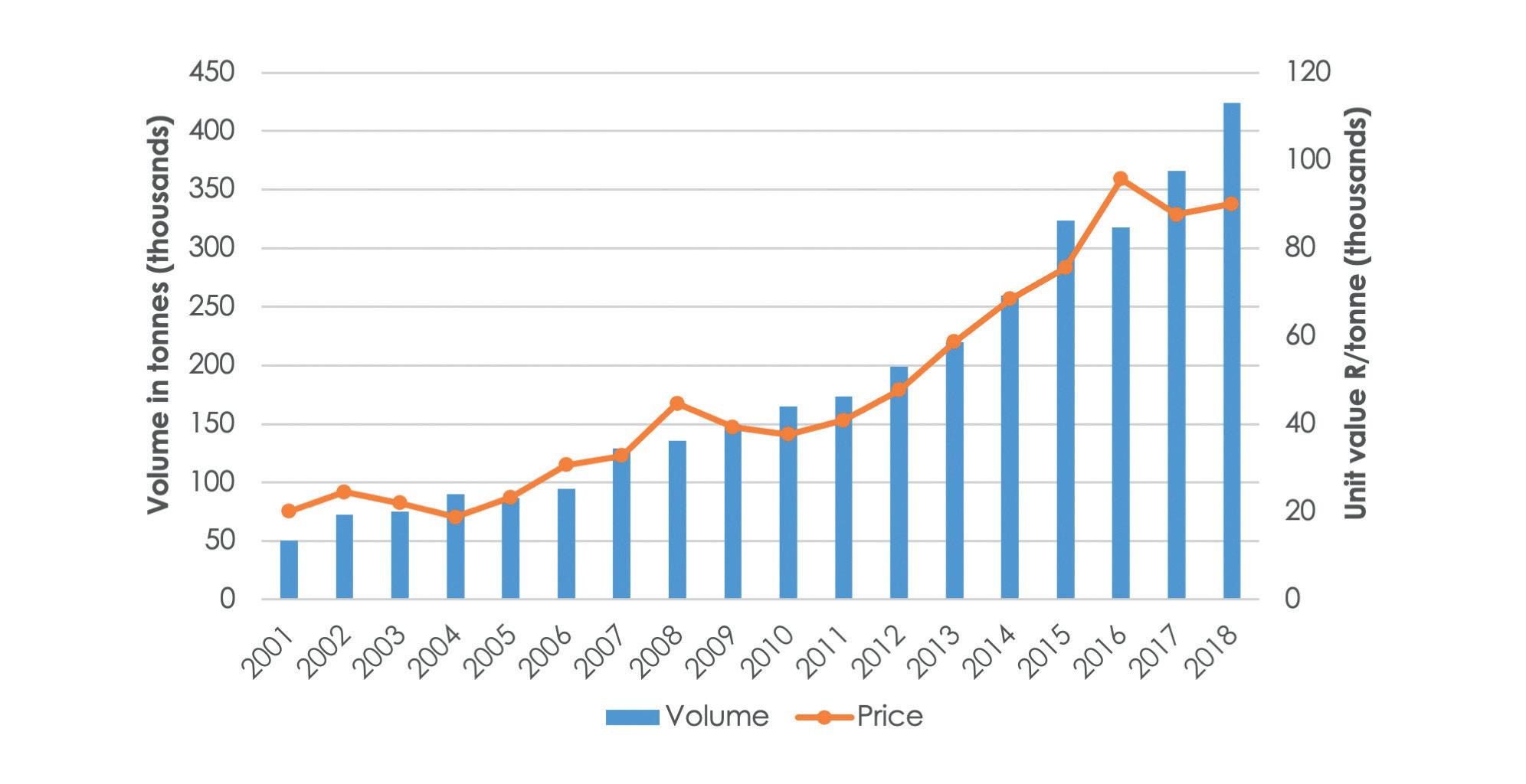
1 minute read
R25 million drought relief
by WCDOA pubs
by Jody Wentzel, jodyw@elsenburg.com
AA drought is a slow-onset natural hazard with effects that often accumulate slowly over a considerable period of time and may linger for years after the termination of the drought event. These effects are non-structural and are typically spread over a larger geographical area. The Western Cape has been experiencing a continuous drought that has affected many farmers by decelerating agricultural production, distressing farmers financially, and subsequently affecting job security for agri-workers.
The Sustainable Resource Management Sub-Programme: Disaster Risk Management (DRM) has been supporting farmers across the province with drought relief through the distribution of fodder vouchers. Biannual veld assessments are facilitated by DRM in conjunction with the department’s Plant Science directorate to assess the conditions of the veld and regulate the areas in need of drought relief support.
Farms categorised as extremely critical receive monthly drought relief support while critical areas receive bimonthly support. Veld areas declared to be in a good condition do not receive support. Fodder vouchers are generated based on the number of large stock units (LSUs) on the farm, provided all the qualifying criteria checks are passed.
Although recent rains and snowfall have brought relief to farmers across the province, the impact of the severe drought is far from over. In some areas, such as the Central Karoo, Little Karoo and Matzikama regions, farmers are still battling the catastrophic effects of the ongoing drought. The agricultural sector remains particularly vulnerable to water risks and a changing climate.


DRM has received a R25 million drought relief allocation from the Provincial Disaster Management Centre (PDMC) in July 2020. One of the Sub-Programme’s objectives is to distribute fodder vouchers, due to the national state of disaster declared by the president and the subsequent national lockdown from 23 March 2020. However, the normal operating procedures needed to be amended to accommodate the restrictions in terms of movement, contact and communication.
When fodder vouchers were distributed in April 2020, Level 5 restrictions were in place and permits were required by all citizens in order to move around legally, while only essential shopping was deemed acceptable. Farmers were then required to collect the fodder for which they qualified directly from the cooperatives as DRM avoided the distribution of vouchers to each farmer individually to restrict contact and adhere to social distancing regulations.
With the ease in restrictions to lockdown Level 3 from 17 June, the August 2020 vouchers from the R25 million relief fund were distributed to 1 172 farmers as per normal operating procedure.

The department remains committed to support farmers as we acknowledge the difficulties they face and the impact that drought and a pandemic has had on the agricultural sector.













